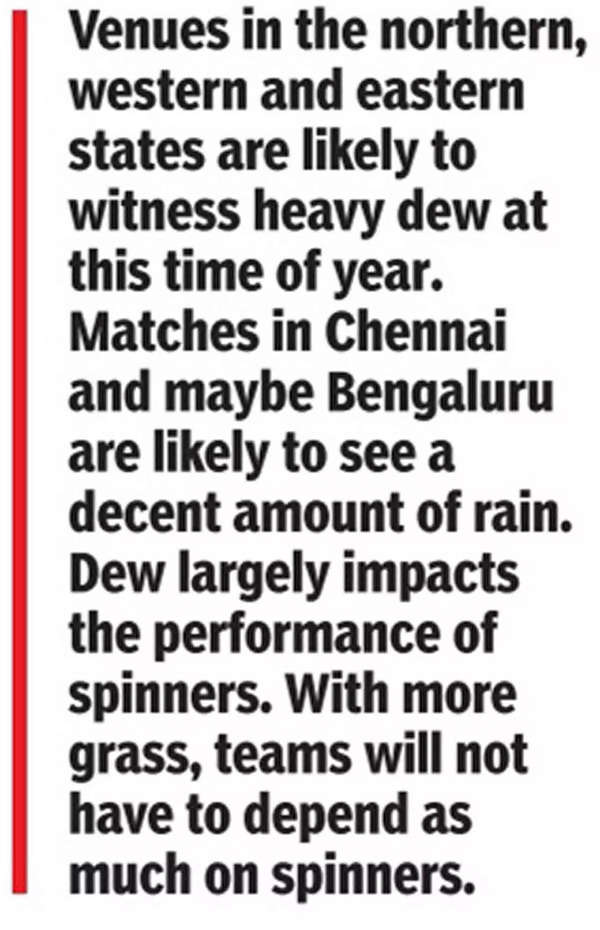NEW DELHI: With dew set to play a major role in the upcoming ODI World Cup in India, the International Cricket Council (ICC) has fashioned a ‘protocol’ for curators across venues to ensure that the impact of the toss is reduced to an extent.
Most venues are expected to be affected by heavy dew during October-November.The T20World Cup in the UAE in 2021 too was heavily affected by dew and team batting second had a significant advantage.Indian conditions are usually more conducive to spin, but the ICC has asked curators to leave as much grass as possible on the pitches to ensure that seamers stay in the game. This will mean that teams will be keen to have more seamers in the playing XI.
“Venues in the northern, western and eastern states of India are likely to witness heavy dew at this time of year. Matches in Chennai and maybe Bengaluru are likely to see a decent amount of rain. The main idea is to keep the toss out of the equation as much as possible. Dew largely impacts the performance of spinners. With more grass, teams will not have to depend as much on spinners. That will also help in having true surfaces. And ODI games don’t need to see very high scores to be interesting,” a source told TOI.
To maintain a balance between bat and ball, it has been suggested that stadiums should have maxi mum possible boundary size. It is learnt that venues have been told to maintain boundary sizes of around 70 metres.
“The minimum size of boundaries for international matches is 65 metres and maximum is 85 metres. The old centres have a boundary size of around 70-75 metres. It has been suggested that boundaries should be kept more than 70 metres. The Indian cricket board (BCCI) has also directed curators to use a wetting agent that has been standardized by the board and ICC. Most venues these days use similar wetting agents. But now the board has directed every centre to not use any other wetting agent than what has been prescribed,” sources said.
The Indian team, however, would prefer to play on turning pitches against Australia and England. While the match against Australia in Chennai on October 8 isn’t likely to be affected by dew, the match against England in Lucknow on October 29 will be a challenge for curators.
Chief selector Ajit Agarkar, while announcing the squad for Asia Cu p a month ago, had acknowledged the dew factor. India have two finger spinners in Ravindra Jadeja and Axar Patel while Kuldeep Yadav is the lone wrist spinner in the squad. “Dew will play a part. We have seen it many times. But it is more about the balance of the team. Sometimes it is a little bit easier for pacers than spinners to grip the ball. A good bowler will find a way to bowl in different conditions,” Agarkar had said.
India decided to go with an extra seamer in Shardul Thakur for his batting abilities down the order. But keeping the dew factor in mind, India wouldn’t mind more seam options.

